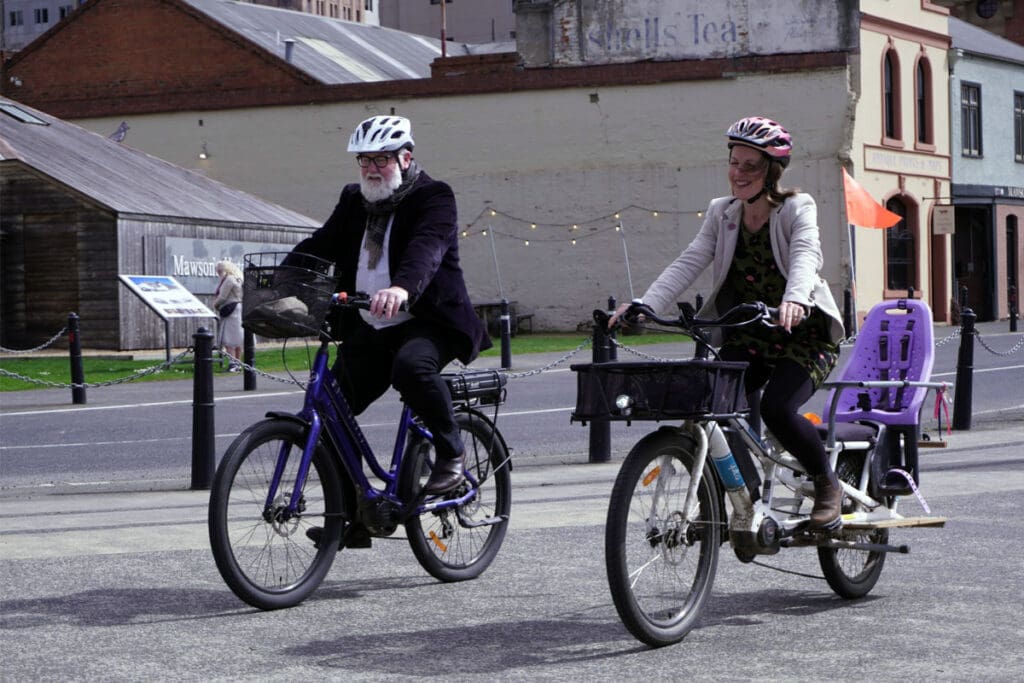Tasmania Leads Australia in E-bike Purchasing Incentives

Hobart, Tasmania
The Tasmania Government has begun piecing together the details of its announced $1.2 million incentives to increase the uptake of electric vehicles, e-bikes and e-scooters, promised during the unveiling of its Climate Change Action Plan 2023-25 last month.
The Government’s Climate Change Office confirmed this week it `has begun consultation with relevant community bodies to help inform how the incentives will be rolled out, as it looks set to become the first State Government in Australia to introduce incentives to purchase e-bikes and e-scooters.
Cycling lobby groups such as the Bicycle Network have celebrated last month’s announcement but are waiting to see how much of that $1.2 million will be allocated to e-bikes and e-scooters and how it will be made available.
The Government’s timeline for the action plan includes the release of a Transport Emissions Reduction and Resilience Plan in November, to further spell out how it will transition the State towards sustainable transport and cut vehicle emissions on the way to a 43% reduction on overall emissions by 2030, compared to 2005 levels.
A representative of the Climate Change Office said there had been no decisions on the grand structure and eligibility for assistance through the $1.2 million allocation.
“As this initiative will be the first of its kind in Australia, it is important we take the time to ensure it is fit for purpose and meets Tasmanian needs,” according to a statement from the office.
The action plan also commits the Government to ongoing collaboration with local governments to improve active transport infrastructure, as well as updating the Tasmanian Walking and Cycling for Active Transport Strategy.
Reshaping NZ Streets 2023
The NZ Government this month gazetted a new Reshaping Street regulatory package designed to help local authorities and communities “work together to modify their existing streets to provide more space for people to move around using a variety of transport options”.
That includes enabling councils to better manage traffic in their communities and trial changes to their streets.
The Government says Reshaping Streets will reduce administrative complexity for councils and make it clearer to communities how councils will work with them to make any changes on the ground.
“We need to make it safer, quicker, and more attractive for people to walk, bike, ride devices, and take public transport in our towns and cities, to help people travel safely and with minimal impact on our environment and air quality,” the Government says on its Reshaping Street webpage.
“All these activities take place on streets – but most streets in New Zealand do not give dedicated space or priority to these activities.”
The package will come into effect as law on 21st August.
